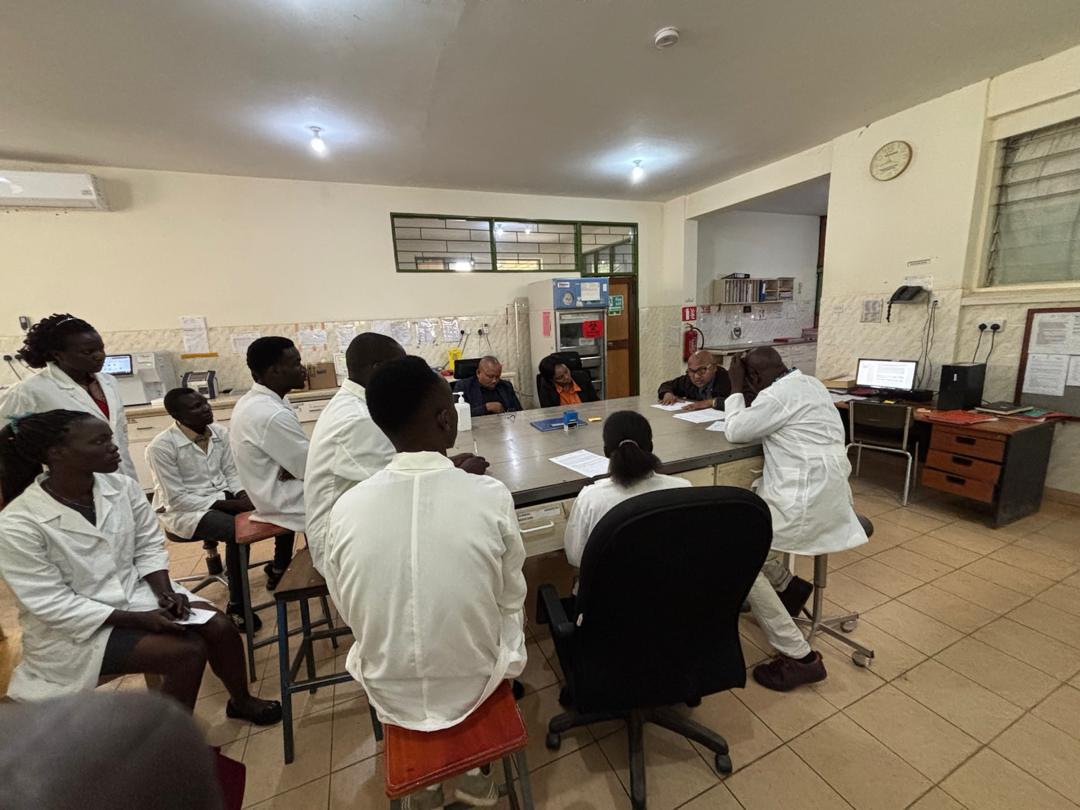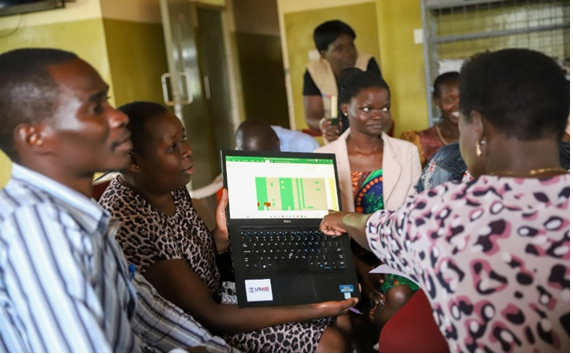At Anecca, we focus on strengthening service delivery systems to improve access, coverage, and equity in essential health services. We work with public and private sector partners to ensure that quality HIV, TB, RMNCAH, and nutrition services are delivered efficiently and are responsive to the needs of vulnerable populations through the following approaches.
i. Laboratory Services and the Hub System
Driving Impact Through Reliable Testing and Referral Systems
Between 2022 and 2024, Anecca, through the USAID Local Partner Health Services (LPHS)–Karamoja project supported collection and referral of over 19,450 viral load samples from all nine districts in Karamoja to the Central Public Health Laboratories (CPHL) for timely analysis. During the same period, over 77,500 sputum samples were tested, resulting in the identification of 2,857 TB-positive cases, including 77 rifampicin-resistant cases, vital input that directly informed patient care and public health response. Through targeted support, diagnostic capacity was enhanced with power backup systems for GeneXpert machines at the two hubs at Kotido General Hospital and Tokora HCIV.
Promoting Quality Assurance and Accreditation Across Laboratories
Anecca has been instrumental in raising the bar for laboratory quality assurance in Karamoja. By 2024, 90% of laboratories were consistently participating in the national HIV proficiency testing program. These labs achieved a 92% pass rate compared to 86% between Oct-Dec 2022, thus reflecting strengthened competencies and improved reliability of HIV diagnostics.
In pursuit of international excellence, Anecca supported:
• St. Kizito Hospital-Matany in maintaining its international laboratory accreditation in 2023 and 2024.
• Kotido and Abim General Hospital laboratories in attaining STAR-3 certification conferred upon by the African
Society of Laboratory Medicine (ASLM).
• Facilitated training on the new ISO 15189:2022 for 10 laboratory personnel across the five laboratory hubs, thus enabling transition of the implementation of the Quality Management Systems (QMS) to the new international standards.

Advancing Integrated Diagnostics for Broader Health Outcomes
To promote disease multiplexing and enhance diagnostic capacity, Anecca expanded access to specialized testing services by:
• Activating six new GeneXpert sites in the region for cervical cancer screening and C-Reactive protein testing.
• Connecting 11 point-of-care (POC) sites to the African Laboratory Information System (ALIS), enabling real-time synchronization of diagnostic results across the network.
ii. Quality Improvement
At Anecca, Quality Improvement is at the heart of our approach to strengthening health systems and improving service delivery. Our QI initiatives focus on building the capacity of health workers and health systems to continuously identify gaps, implement changes, and monitor progress toward better outcomes for mothers, newborns, children, adolescents, and people living with HIV.
Through strategic partnerships with Ministries of Health, partners, and community structures, Anecca supports the establishment and functionality of QI structures at both facility and district levels
The approach prioritizes the use of data for decision-making, innovation, and sustainability. We support facilities to generate and utilize QI dashboards, conduct root cause analyses, and apply evidence-based solutions that respond to local challenges in service delivery. Our tailored mentorship and coaching models have contributed to improved outcomes in areas such as HIV viral load suppression among children and adolescents, Cervical cancer screening, and integration of non-communicable disease screening and management into routine HIV care.
By embedding QI into routine health services, Anecca ensures that quality is not just a goal but a culture.
iii. Community Engagement: Empowering Communities to Drive Health Outcomes
Community systems are central to Anecca’s work. We strengthen the role of community structures such as Village Health Teams (VHTs), Community Health Workers (CHWs),
HIV/TB peer supporters, and local leaders in improving health outcomes. Anecca promotes community-led monitoring, health education, and referral systems, and ensures community voices inform the design and delivery of health interventions. We place special emphasis on vulnerable and underserved groups to promote equity and inclusiveness in health programming.
Health Information Systems: Data for informed decisions
Anecca plays a critical role in strengthening Health Information Systems by enhancing the generation, collection, reporting, analysis, and use of routine data for informed decision-making in the domains of HIV, maternal, newborn, child, and adolescent health.
Through its technical assistance to regional and district health teams, Anecca has built capacity in the use of national systems such as DHIS2, UgandaEMR and facility-level tools to improve data quality and reporting.
Anecca has contributed to data use for action by supporting monthly and quarterly performance review meetings at district and health facility levels. In Karamoja, Anecca also supported the development and use of simple dashboards and data summaries to improve visualization and interpretation of trends in high-burden settings





